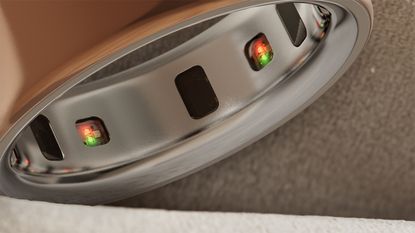Active
The latest Active breaking news, comment, reviews and features from the experts at T3
Explore Active
-

Samsung’s 2026 Galaxy Watch lineup is taking shape, but two products are missing
Leaks point to the Galaxy Watch 9 and Ultra 2, but there’s no sign of a Pro model or Galaxy Ring sequel
By Matt Kollat Published
-

In a world of carbon-plated running shoes, Altra just went the other way
Altra’s new Experience 3 shoes push back against the super-shoe era
By Matt Kollat Published
-

44-year-old Justin Timberlake’s gruelling workouts look more like an athlete’s than a celebrity’s
The star's trainer shares a rare look at JT's surprisingly no-frills workout routine
By Matt Kollat Published
-
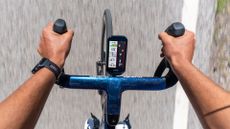
Garmin upgrades its Varia bike radar with vehicle “threat levels” and brake light tech
The new Varia RearVue 820 adds smarter vehicle tracking, a brighter tail light and longer battery life
By Matt Kollat Published
-

Why 90s running style still looks better than today’s
Running didn’t used to be this complicated, and late-80s/early-90s gear proves it
By Matt Kollat Published
-

“When things don’t go to plan, the real adventures begin”: Patagonia’s travelling free repair workshop returns to the UK
Patagonia confirms UK dates for its 2026 Worn Wear Snow repair tour
By Matt Kollat Published
-

Why this 80-year-old Ghostbusters actor does 100 push-ups a day without ever setting foot in a gym
Ernie Hudson’s daily routine shows how consistency underpins strength at any age
By Matt Kollat Published
-
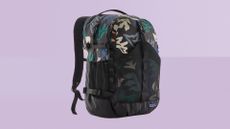
In an unexpected move, Patagonia refreshes its popular backpack for 2026
Patagonia quietly relaunches its Refugio Daypack 30L
By Matt Kollat Published
-
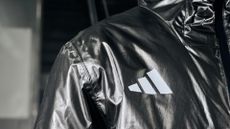
Adidas targets winter sport’s biggest hidden performance problem with a heated pre-race jacket
The CLIMAWARM SYSTEM uses built-in heating to help athletes stay powerful in the coldest moments before competition
By Matt Kollat Published
-

Sea to Summit’s new ultralight camping mat claims more comfort and less bulk with no weight penalty
The Ultralight XR Insulated Sleeping Pad launches as a REI-exclusive (for now)
By Matt Kollat Published
-

Adidas Terrex targets technical trail racing with a new stability-first speed shoe
The new Agravic TT is said to offer a more stable, protective option for fast running on highly technical trails
By Matt Kollat Published
-
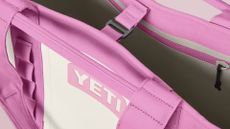
One of YETI’s most viral bags just landed in a bold new colour drop
YETI’s cult Camino 35 gets a Valentine-ready refresh
By Matt Kollat Published
-
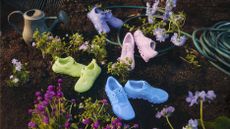
On and Sky High Farm Goods are back with a wildflower-inspired trainer drop for SS26
The food equity-led partnership returns on 5 February with three very colourful shoes, plus a kids’ golf-style spin
By Lee Bell Published
-
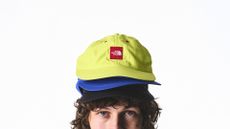
The North Face doubles down on Red Box as streetwear and outdoor continue to blur
The 25-piece SS26 drop builds on last year’s revival, blending technical fabrics with fashion-led silhouettes
By Matt Kollat Published
-
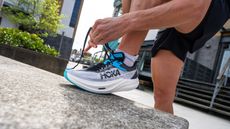
HOKA is betting its future on premium running shoes, not volume
Deckers says "performance remains at the core of what the brand is," and HOKA is certainly moving upmarket in running
By Matt Kollat Published
-
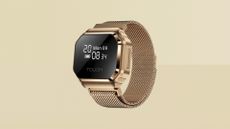
This subscription-free $50 smart ring looks like a tiny Casio watch and lets you exchange “love codes” with your partner
Rogbid's Fusion pairs basic health tracking with a rare couples-focused feature, and skips subscriptions entirely
By Matt Kollat Published
-
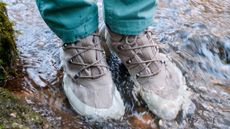
Vivobarefoot Tracker Textile AT II review: a waterproof barefoot hiking boot built for wet trails
The brand's waterproof take on trail-ready barefoot footwear is a triumph
By Matt Kollat Published
-
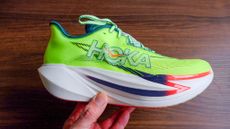
"It feels like it’s got a new half-marathon PB written all over it!": Hoka reveals its fastest race shoe as the Cielo X1 3.0 breaks cover
The brand’s top-tier carbon racer gets lighter, thicker and more efficient
By Matt Kollat Published
-

Garmin fixes a bunch of annoying bugs in Forerunner 570 and 970 watches with latest beta update
Beta version 16.17 adds a couple of small upgrades, but it’s mostly a round of stability tweaks, including multiple HRV chart fixes
By Lee Bell Published
-
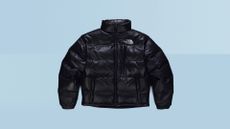
The North Face’s latest performance hints at a bigger shift underway
Strong holiday-quarter results from parent company VF Corp put The North Face back in focus, as Altra continues to grow
By Matt Kollat Published
-
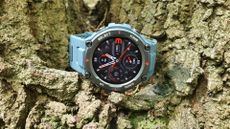
Amazfit teases a display upgrade that puts pressure on Garmin – and Apple
Leaks suggest Amazfit’s next T-Rex Ultra could adopt MicroLED display tech
By Matt Kollat Published
-
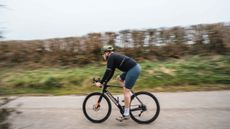
Orbea Gain M20i review: carbon e-road bike with subtle assistance and serious range
A subtly assisted road bike that prioritises range, refinement and realism over outright speed
By Matt Buckley Published
-
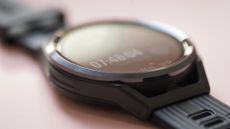
Chinese wearable giant targets Garmin with new running smartwatch backed by a legendary Olympian
Huawei teases new performance wearable with Eliud Kipchoge and his training team
By Matt Kollat Published
-
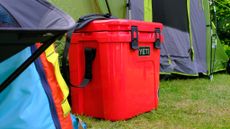
Best cooler for camping 2026: keep your food and drinks cool and fresh
Browse the best cool boxes, cool bags and electric coolers for camping, festivals, picnics and balmy days at the beach
By Matt Kollat Last updated
-
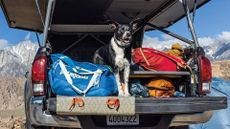
Patagonia's hidden up to 30% off sale has some real gems – here are 8 deals I would buy
Patagonia doesn’t shout about discounts, but this low-key sale is stacked with genuinely good gear
By Matt Kollat Published
-
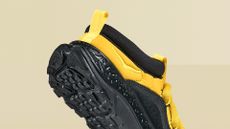
'It’s the ultimate travel shoe… can be active, on the beach, on a hike, or worn with streetwear': Hoka quietly updates its cult laceless recovery shoe with a bold new look
The Ora Primo looks great in its new yellow and black colourway
By Matt Kollat Published
-
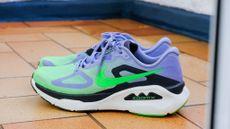
Nike Structure Plus review: Premium stability without the stigma
Nike’s premium take on stability shoes blends ZoomX cushioning, subtle support and everyday wearability, without looking like a medical device
By Matt Kollat Published
-

Lenovo-backed Talix wants to fix the biggest flaw in portable power stations
A new modular power platform claims to ditch master units, boost USB-C power, and rethink how portable energy systems scale
By Matt Kollat Published
-
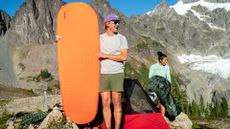
Best camping mat 2026: Inflatable and foam sleeping pads ranked
The best camping mats for every occasion, from self-inflating pads to cheap and cheerful roll mats
By Matt Kollat Last updated
